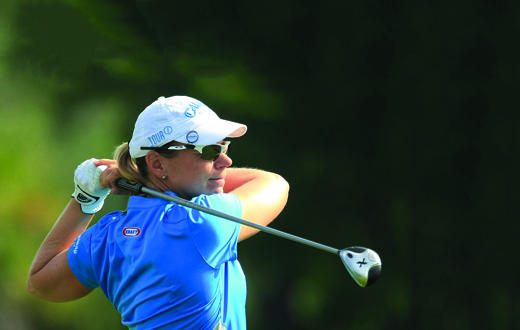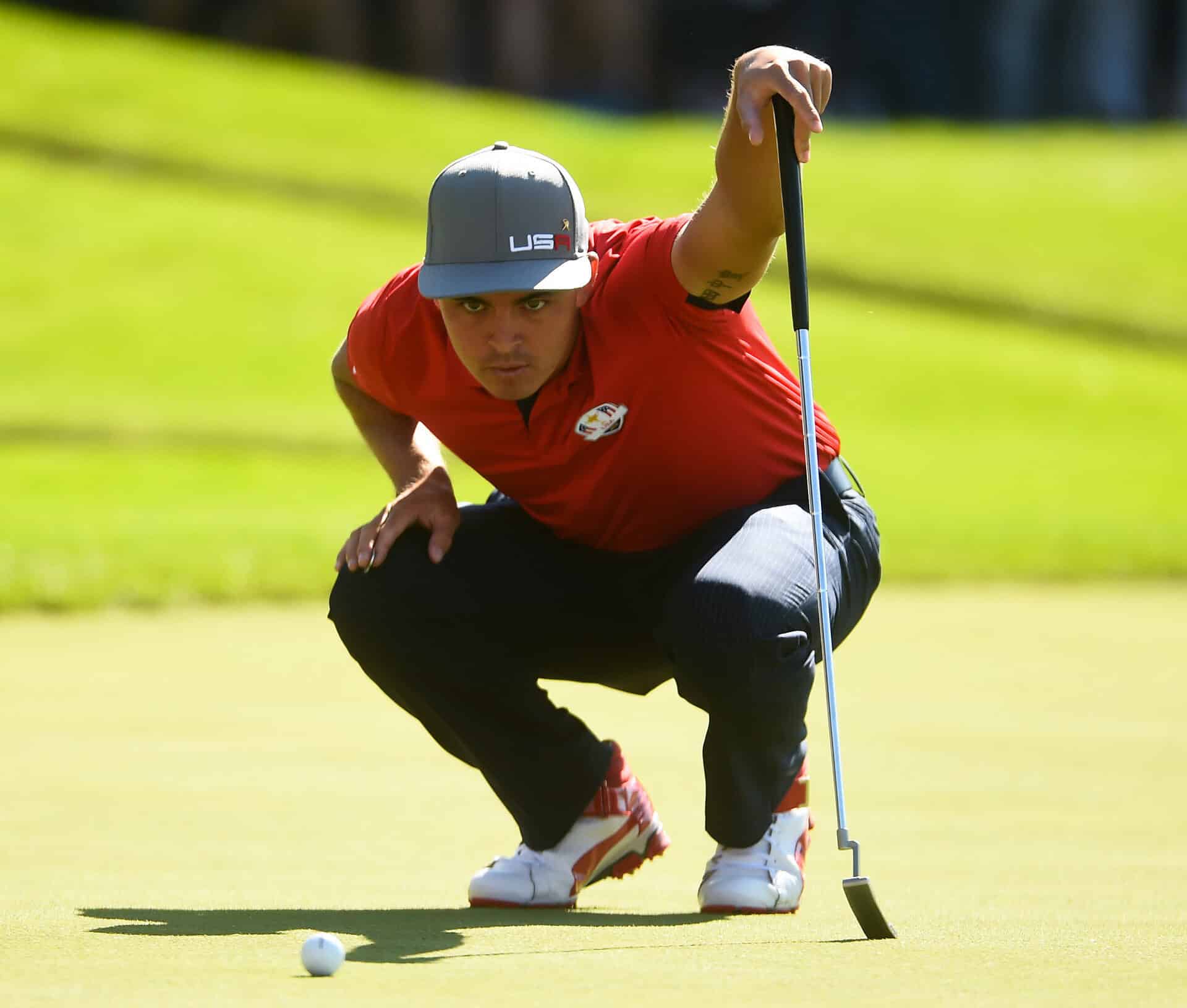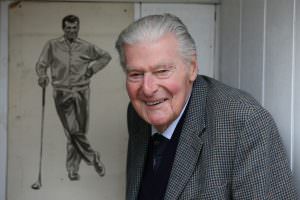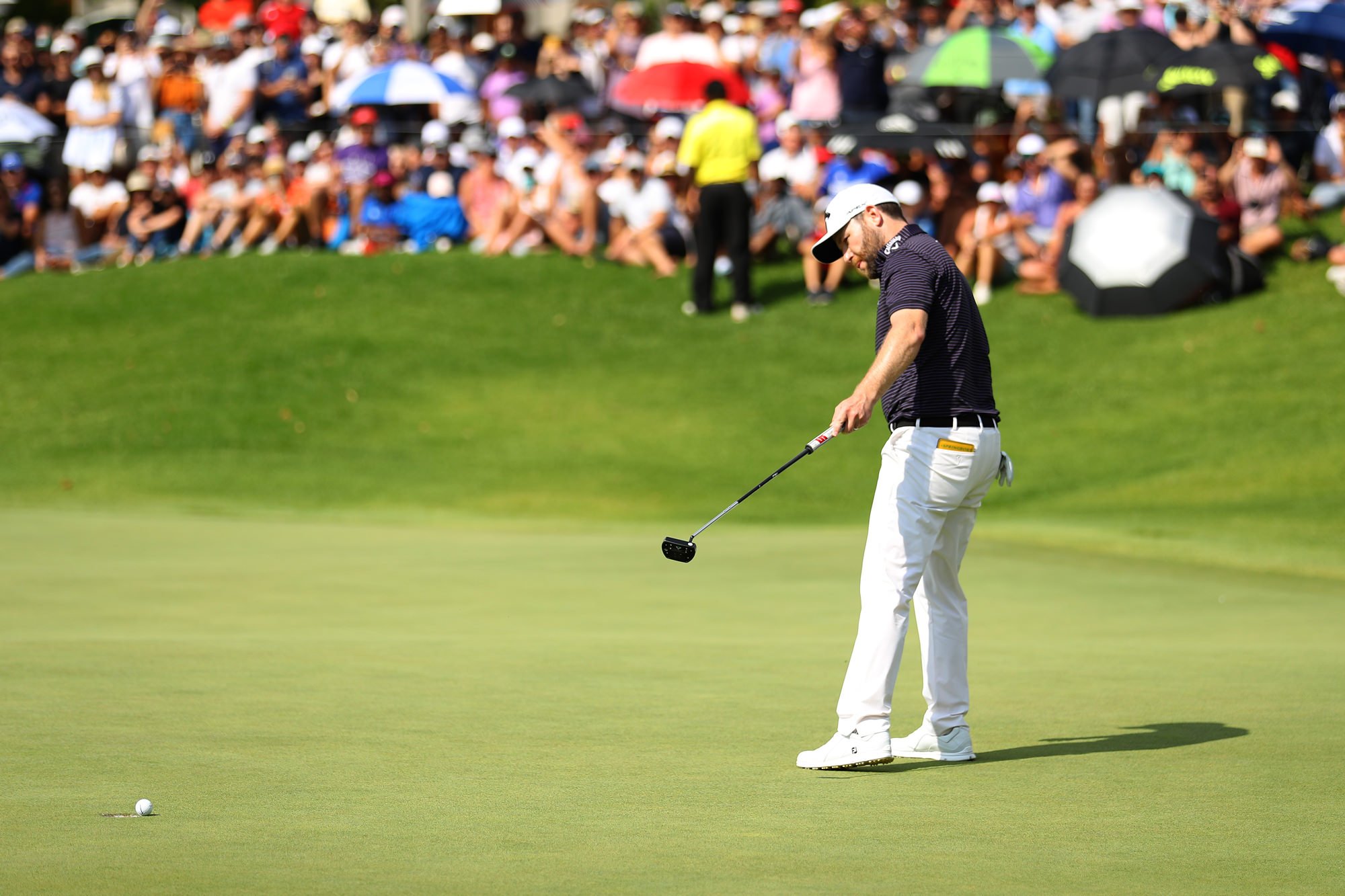
Mind tips: How to unlock your potential with VISION54
Lynn Marriott and Pia Nilsson are the co-creators of VISION54, a way of thinking that believes that it is possible for a player to birdie every hole. Their most famous student was Annika Sorenstam, winner of 10 Majors and the only woman to break 60 on Tour.
Their instruction concentrates on what happens on the course and how to handle all the different scenarios that are thrown up over the course of a round.
So, who better to quiz and pick the brains of in order to help you think clearer and better this year (and beyond) on the course? Golf Digest ranked them the No 1 and 2 women teachers in the States, so sit back, drink in all the brilliant advice and get the most out of your game in 2016.
Often I know I’m going to play badly even before I have started. What advice could you give?
PN: First of all, whoever we are, none of us know whether we are going to have a good round or a bad round and none of us will ever know.
If there is something that doesn’t feel right is there something under your control that you can do about it? If you feel like you are all tense and tight in your body then take some deep breaths to relax. If you know you can’t hit a pitch shot can you hit a different type of shot?
So it is about checking in with ourselves and deciding what you can do to help yourself. Often we think we are going to play badly and we play great.
I still get freaked out by playing in medals whereas in Stableford or knockout I’m fine. I’m always waiting for a disaster to happen?
PN: Your mind is going to the future and predicting things. We never know if our next shot is going to be our greatest shot ever or a bad shot or something in between.
The most important thing is not to believe everything in our heads, we have a lot of thoughts but it doesn’t mean that everything is true. Try singing a song or counting your steps or anything to distract yourself. There is more pressure in medal play so you have to be better managing your mind and the time in between shots.
I don’t visualise any shots, how do I start?
LM: We have more than one sense; we have our visual sense, we have our kinesthetic sense, we have our auditory sense and taste and smell. Some people aren’t strong visualisers and that is fine, some people don’t need that. What you do need to do is decide on a target and make a decision.
People think you need to see the shot in its entirety, like Jack Nicklaus did, but that’s not true. Some players have a keener sense of the shot through the feeling in their feet or hands. Tiger Woods said he doesn’t see his shots like a Shot Tracker, what he said he does is feel the shot in his hands. Don’t worry if you can’t visualize, be present and decide on a target.
Every shot you play requires a decision and then a commitment to that decision ” I am very tentative in my putting. Any putt over 10 feet I am always thinking ‘don’t three putt’..
LM: Every shot you play requires a decision and then a commitment to that decision so you can never get away from that. It is as essential as gripping the club.
For putting we always say decide on your aim on a putt before you go in to hit it so that decision is done and you are not going to change your mind when you are over the ball. So then, when you are in the Play Box, all you have to think about is a feel for distance.
That way you can keep it really clean and short and the shorter time you can spend over the ball the better. That silly little monkey brain won’t butt in and tell you not to three putt or miss it or whatever unhelpful advice it is.
I get confused with having so many different swing thoughts – how many would you recommend having?
PN: Instead of having a swing thought it’s much better to have a swing feel or using any of your other senses. In the moment of performance we want to be sensory based; seeing, hearing or feeling something. It might be feeling your shoulder turn or grip pressure or seeing the ball flight or sensing your rhythm.
We would like you not to have any thoughts, by thinking of grip pressure it won’t do you any good. Feeling the grip pressure is useful. Many people can only have one swing sensation, others can have two.
I always play badly with the same person – how do I play my own game?
PN: If you play with others who you don’t play well with you need to realize how that affects me. You might swing too fast so you need to swing slower or someone might walk in your line so, next time, you can ask them to stand still or, if they don’t, you need to practise more with people walking all around me. You need to see how you are affected and then have an action plan.
If I hole two putts on the trot my thinking is that this can’t last so talk myself out of holing it?
LM: The only thing we can count on is how present we are over every shot. Another technique we have found that works is to distract this kind of self-talk. Here your brain is just going kooky at the thought of things happening.
Players on the Tour have all sorts of strategies, one player gets out their yardage book and does Sudoku puzzles. That stops the monkey brain doing silly things. Another player will look up at the trees and count the leaves. Another will do sketches, anything to distract the monkey brain. And then you come back to the shot and the present which is under your control – we call it the Play Box Awareness.
I always play the 14th badly. I can’t reach it in two and I haven’t got a shot there..
LM: Again you are predicting your future based on your past. And it doesn’t have to be this way. I would suggest you going out to this hole with several balls and you need to find that third shot that suits your game. Annika Sorenstam knew that her best wedge distance was 60 yards so, on a par 5 where she couldn’t get up, she would leave herself that distance. It was predictable and she was comfortable with it.
If you can’t play it walk it backwards and walk it from green to tee. Sometimes the brain needs a new perspective and just flipping it around can really help. Just imagine as you are walking back where do you want your shots to land? It’s a really fun thing, even players on Tour have a ‘gotcha hole’ so we do this and it really works.
When there is a carry to be made I freeze. It’s 120 yards but I always hit a poor shot?
PN: Do you stay too long over the ball when swinging or does your brain freeze or do you get tight? We all have shots that we don’t like but we need to recognize what happens. If you doubt your decisions then you need to be a lot clearer in your thinking.
If you stay too long over the ball then you need to keep it the same as when you hit great shots. If you can’t get in the right state you need to find a different way of playing the hole.
Our 1st hole is a very short and easy par 4 though that puts more pressure on me as I know it’s a good chance to score well and, being the 1st, I rarely do?
PN: It goes back to predicting and having expectations. The mindset of playing is to know that every day is going to be a different day, you are never going to have two days the same through your whole life, and you are never going to predict anything. You can warm up great and play badly and vice versa.
Before you play focus on something that you have control over like a slow tempo. Or just smile and enjoy the scenery because you have just had some irritating office calls.
You need to have something that you can commit to so you don’t walk around expecting or predicting or having any assumptions on how to do things.
If I play the first six holes well my wind begins to wander very quickly and I try and play defensive golf. And it never works.
PN: We used to play a game on the Swedish team years ago when we played three-hole matches and then you would start a new match. So if you are off 18 and you parred one hole and bogeyed the other two then you have won that match one up. And then you start a new match whatever.
The goal is to win as many matches in the 18 holes. If you are getting defensive think of something positive like a really strong, committed finish position to stop you getting defensive.
If I play the first 12 holes well I start thinking of my winner’s speech and what I should say, and I then never win…
PN: This was the case for Annika Sorenstam, Sophie Gustafson and me when we were young. The first thing to realize is that we weren’t winning because we were afraid of giving a speech.
So we would practise giving speeches as that skill needed to be addressed as it is part of golf. Even if it is short do it in front of the mirror or video yourself or do it in front of your friends.
When I play and I am still thinking about it I would sing a song or count my steps to distract myself from the future. But you also need to find some way of practicing and at least being able to go up for your prize and saying thank you with a big smile on your face.
THE VISION54 VIRTUAL GOLF SCHOOL
This has just been created so you can improve your game from your desktop or mobile. This interactive programme includes video demonstrations, audio coaching tips and downloadable exercise plans to take to the practice ground or course.
The first course, Essential Playing Skills, consists of nine modules which will teach you the essential human skills to play better on the course and enjoy the game more.
For more details visit http://www.vision54.com/









